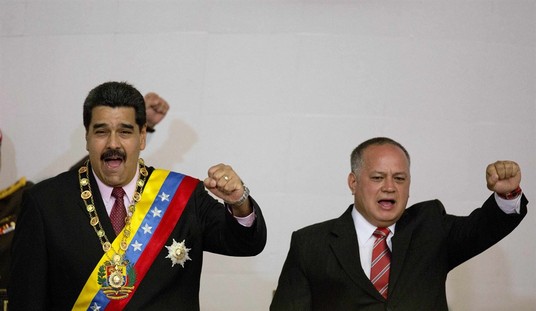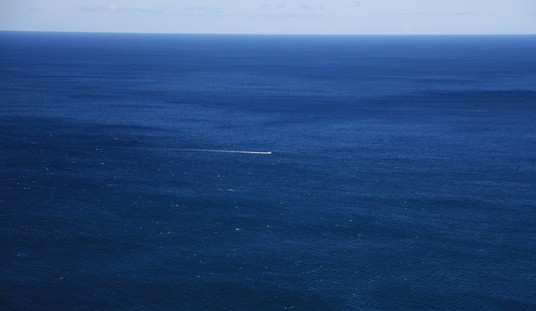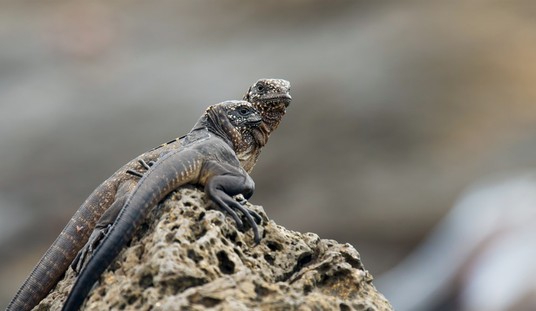It was a dark and stormy night; raw, damp, chill but nevertheless, the very dedicated Elaine Schwartz, of Congregation Tifereth Israel, in Glen Cove, Long Island, managed to turn out a serious crowd to watch the film The Case for Israel. I was there to lead the discussion afterwards.
When I arrived, people were already eating. God forbid they should go hungry! I, too, was starving. Prick me, am I not a Jew? Schwartz, who organized this entire evening, understood that people will turn out at night if you feed them a little something first. It worked.
I have written about this film, produced by Gloria Greenfield and directed by Michael Yohai before. Each time I watch it, I again realize what a powerful educational weapon it really is. As I wrote, United Nations Secretary General Ban-Ki Moon ought to lock the doors of the General Assembly and force every last rogue and tyrant to watch it. Once again, inspired by the film, I spoke without notes, and with great passion, and the discussion afterwards was quite serious. After three hours, people still lingered; many did not want to leave.
There were no “youngsters” in the crowd. Maybe young people are home at night with young children; maybe they think that they will live forever, always safely. Maybe they are not that interested in Israel, now that the country is no longer as fashionable as it once was, now that it has been so totally demonized.

Tifereth Israel, Glen Cove, April 1, 2009.
Thus, the people who were gathered together were mainly in their late fifties, sixties, seventies, and eighties. They were retired professionals and business people, in good health and of sound mind and body. Collectively, we had lived through the Great Depression and the Second World War; we, our grandparents, or our parents, had come to America in flight from persecution; we had all known a time before Israel was a state, and many times thereafter, when Israel had to fight to remain one.
Indeed, one man said: “I was a fighter in World War Two. Back then, none of us even understood the concept of a concentration camp. We did not believe such a thing could exist. Tell me. Are we facing a similar danger now?”
“Yes, we are” I told him, “only now the danger is even greater since the entire world, not just two or three countries, is involved in demonizing Israel and in appeasing the Jew-haters. And, it’s bigger than just the Jews. Now, all the civilians in the world are at risk, especially in the democratic West. But in reality, Muslim jihadists are murdering other Muslims as much, maybe more, than they are murdering infidels.”
When I first arrived, a man who was seated at my table asked me if I wanted to buy his book. I did. His name is Eddie (Yehudah Yankov) Weinstein and his book, published by Yad Vashem Publications is titled: 17 Days in Treblinka. Daring to Resist, and Refusing to Die. Friends: This is a powerful and moving book. I set it aside as my Shabbos reading and I could not put it down.

Eddie Weinstein, Holocaust survivor, Tiferet Israel, Glen Cove.
The book is beautifully written and edited by Noah Lasman. It is a very specific, first-person account of Weinstein’s deportation from Losice, Poland, on August 22, 1942, to his liberation by the Soviet army on July 31, 1944. Weinstein managed to escape six times during the Holocaust.
What Weinstein accomplishes is this: He shows us how quickly and brutally both the successive restrictions upon Jews and their deportations were; how the trapped Jews clung to illusions—(things had been bad before, they will also survive slave labor camps or life in a ghetto, surely, the world will learn of their fate and rescue them, the Germans will be defeated, etc.). Weinstein describes how older people were simply unable to uproot themselves overnight. He shows us how surreal Treblinka’s killing fields truly were where 870,000 Jews were rapidly and relentlessly murdered.
The gratuitous cruelty is heart-stopping. Deported Jews were subjected to torturous thirst, hunger, cold, filth, smothered and dehydrated in box cars or broken by forced marches before they were killed. The Nazi killers kept screaming, beating, shoving, and striking their prey. Those Jews who dared to beg for their lives were immediately beaten to death as punishment—and then shot for good measure, as were those modest, frightened Jewish girls and women who tried to cover their nakedness. Laughing killers shot infants down into huge burning pits. Random killings, mass killings never stopped.
In Treblinka, Weinstein was shot right in the chest, “into the lungs,” but he did not die, he managed to hide under a vast pile of Jewish clothing, which was being sorted; then, he became a sorter of the dead Jewish clothing for 17 days, “each of which was more like a century.” Miraculously, Weinstein and some young friends managed to dodge death in Treblinka and escape. Their troubles continued because now they were at the mercy of both roving German soldiers and of their fellow Poles who sold water to the dying Jews only for valuables, like gold or jewelry; who had already occupied Jewish homes, appropriated Jewish money, food, or valuables, and who were already wearing and selling Jewish clothes—and who were, themselves, at the mercy of a ravenous German army.
All of Weinstein’s relatives perished—except his father, whom he found in a slave labor camp. Together they, and a handful of others, escaped and for two years faced death every moment as they lived in hiding, first under a pigsty, a fishpond, then a forest bunker where some Poles risked their lives to bring them food—which they only did for exorbitant sums of money. Even then, they were always threatening to turn them in and often tried to kill their Jews-in-hiding in very primitive ways.
Weinstein’s personal anecdotes of deadly Polish anti-Semitism, envy, and avarice, after Poland was liberated by Soviet Russia are unbearable to read. Anyone who suggests that Jews return to Poland might read his book. (And yes, of course, there were Poles who heroically hid and saved Jews. Their stories must also be told, their deeds memorialized, as Israel routinely does).
Since I am not a Holocaust scholar, each detail of this brief but remarkable book are as fresh, vivid, outrageous, memorable, as when Weinstein first wrote about it in the mid 1940s in a DP camp. His words retain their power to reach other human souls.
Where did Weinstein get the gold with which to survive? Again, miraculously, he found it in the clothing of the dead Jews and somehow managed to secrete enough gold coins to last for two years.
So, I finished the book, picked up the phone and called Mr. Weinstein. I thanked him for writing this and asked him about himself. He lived in a DP camp for three years where he was taught to knit. When he arrived in America, Weinstein worked for ten years as a Singer sewing machine operator in the garment district. Then, he went into business and began a sweater factory which lasted for 45 years. He is now retired. But not really.
Now, Weinstein lectures on his Holocaust experiences. He told me that he “speaks every day in schools, synagogues, and museums.” He spoke to me about his two sons and then, with characteristic spirit, asked me “if I wanted him to come and lecture, because if I did, he is ready.”
Yes, as many have asked: Where was God during the Holocaust? How can God have allowed the methodically bestial Nazis to kill one-third of God’s own people? A fair and somber question. In Weinstein’s life, only 200 Jews survived out of the 35,000-40,000 who originally lived in that region of Poland.
Of course, miracles also took place every day, every second, during the Holocaust, in Treblinka, and for Eddie Weinstein . Read Yitta Halberstam’s very moving book on this subject, Small Miracles of the Holocaust: Extraordinary Coincidences of Faith, Hope, and Survival.

Elaine Schwartz, Who organized it all.
Eddie Weinstein’s survival is one. His written account is another. Our meeting was coincidental, unplanned but, going forward, it will immeasurably strengthen how I present the case for Israel in the future.









Join the conversation as a VIP Member